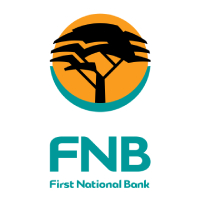Market Review - Aug/Sept 2022
Rents continue to rise in the first quarter of 2022
Rents continue to rise in the first quarter of 2022
Key Highlights- The 12-month average rental index growth came in at 0.6% at the end of March 2022. This is the highest index growth recorded since May 2020.
- The 12-month national weighted average rent was N$ 6 964 at the end of March 2022 versus N$ 6 926 a year ago.
- The biggest increase in rent was observed in the more than three bedrooms segment – a recurrent theme over the past 12 months.
- Deposit-to-rent ratio rebounded to 3.9% due to a relatively high retention rate in the multi-family rental market.
- Rental yields moderated to 6.8% at the end of March 2022 versus the prevailing average inflation of 4.0%.

As anticipated, rent growth continued to rally in the first quarter of 2022 – consistent with upward inflationary pressures witnessed across the world. The average asking rent for the more than three bedrooms units was recorded at N$ 19 329 at the end of March 2022. This is the highest level on record and highlights a high retention rate in the multi-family rental market. It implies that tenants could be renewing their leases at relatively higher rates than ever before due to increased competition and shortage of family apartments.
Both the rental index growth and the national weighted average rent continue to affirm the sustained recovery of the rental market and economy in general, supported by the mining, tourism and agriculture sectors. Nonetheless, the erosion of affordability is a critical risk factor in this recovery path, as there is subdued real wage growth in the context of rising inflation.
Hence renters need huge income growth in a market where rent-to-income ratios are not improving despite rent hikes. We estimate the average rent-to-income ratio to hover around 39% – close to the affordability ceiling of 40%.
The regional breakdown shows the fastest rebound in rent price growth across the markets where home sales are increasing. The 12-month average rent in Swakopmund and Walvis Bay contracted by 12.9% and 7.5% y/y compared to contractions of 29.9% and 28.8% y/y in 2021. Windhoek’s contraction in average rent was 3.6% y/y at the end of March 2022 compared 2021’s 4.0% y/y. As global leisure travels resume, easing competition pressure is also likely to support the pace of recovery in the rental market.
The residential rental listings totalled 3 077 units in the first quarter of 2022, up by 10.0% y/y and 15.3% q/q. This points to an active rental market as the economy continues to gradually recover from its pandemic lows, while the variation in vacancy rates may indicate changing household preferences. For instance, the share of rental listings for the one-bedroom units increased, which may be attributed to affordability issues and increased availability in the single-family market. Larger homes saw rental listings decline, suggesting a relatively high retention rate in the multi-family rental market.
Rental yields
Rental yields have remained stable, averaging 7.9% in the last 10 years and settling at 6.8% at the end of March 2022. While this is one of the key attributes of a stable financial sector, the widening housing backlog is arguably keeping the rental yields high and at levels above the prevailing average inflation of 4.0%. Thus, landlords earn a stable income and can weather possible setbacks like failed rental payments.
Conclusion
We are starting to see household formation among renters in the upper income brackets, particularly in terms of multifamily units. This may be helping to feed demand for these new leases at high prices. We expect rental prices to increase further even if house prices fall due to rising cost of utilities and lack of housing supply – sparked by a buoyant sales market.
Furthermore, the subdued real wage growth and rent-to-income ratio of about 39% would mean the majority of Generation Z would most likely prefer to still rent rather than buy a house due to the associated costs of owning and maintaining a house in a high inflationary environment. As the rental market becomes more competitive, we are also likely to see landlords making energy- and water-saving improvements to reduce costs for tenants, thereby making their properties more attractive and affordable without necessarily having to sacrifice rental income.

Frans Uusiku
Marketing Research Manager

For more information, please call: 061 – 299 2222 or visit www.fnbnambia.com.na

